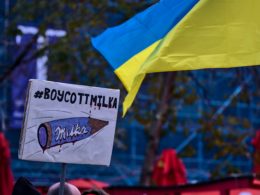Dutch health technology company Philips has affirmed its commitment to continue supplying hospital equipment to Russia, despite the ongoing war in Ukraine, Reuters reported. The declaration was made by Philips’ CEO, Roy Jakobs, on 9 May during the company’s annual shareholders meeting in Amsterdam.
“The right to healthcare is universal, and we are part of the system delivering healthcare,” Jakobs stated. “We do this in Russia, as we do in Ukraine.” The CEO’s comments indicate that Philips’ involvement in Russia primarily focuses on the maintenance and delivery of hospital equipment, such as large medical scanners. The company, however, has halted the sale of its personal healthcare products in the country, with the exception of maternal care products.
Despite the company’s intentions, Jakobs noted that the Russian operations are not profitable.
The Dutch shareholders association VEB, during the shareholders meeting, urged Philips to discontinue its operations in Russia. “It is impossible to remain neutral in this conflict,” VEB’s director, Gerben Everts, asserted.
Companies leaving the Russian market due to war against Ukraine
In the wake of Russia’s invasion of Ukraine in 2022, multinational companies responded with pledges to cease operations in Russia. However, data as of March 3 revealed that 56% of international companies that had ties to Russia before the invasion continued to remain operational in the country. Despite the international outcry and sanctions, only a tiny percentage of Western firms had exited Russia by February 10.
There have been some notable departures recently. One of the world’s largest agricultural machinery manufacturers, CNH Industrial, publicly announced its exit from Russia on April 20. Similarly, Wintershall Dea, Germany’s biggest crude oil and gas producer, stated its intention to fully leave Russia due to the Russian war of aggression against Ukraine on January 18.
In contrast, several other high-profile companies decided to cease operations in Russia, despite the financial losses that would inevitably ensue. McDonald’s, Netflix, Apple, Coca-Cola, eBay, Mercedes-Benz, BMW, and Volkswagen are among the brands that decided to exit the Russian market.
Activists have also played a significant role in pressuring companies to reevaluate their stance. Australian companies Atlassian and Canva, for instance, were pushed by activists to leave Russia.




